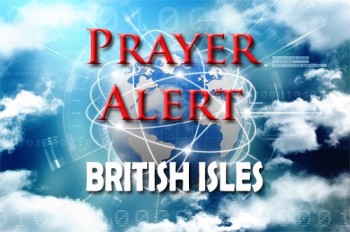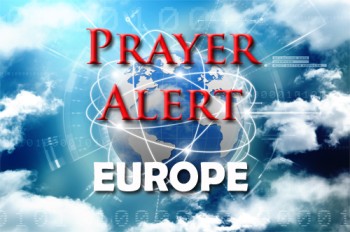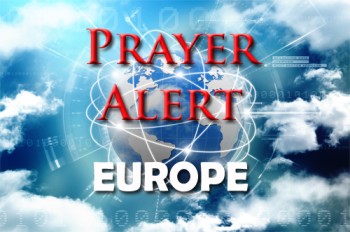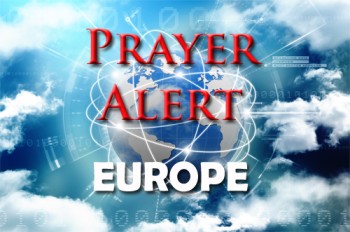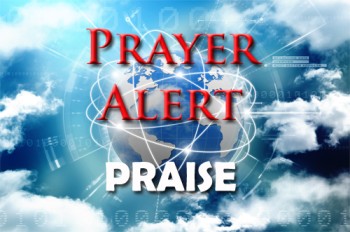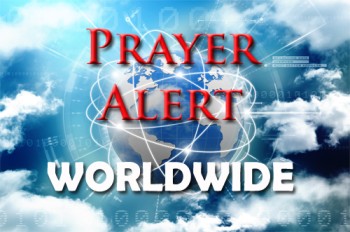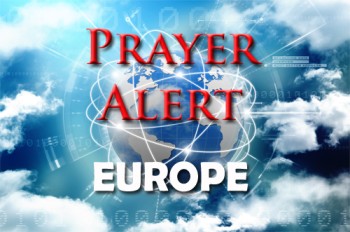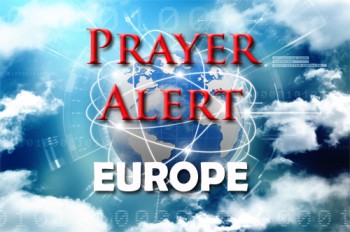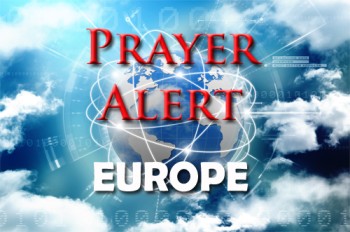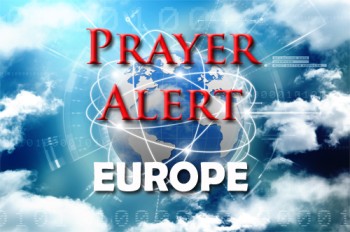Displaying items by tag: Europe
UK bans EU cheese and meat imports
The Government has introduced a temporary ban on travellers bringing cheese, meat, and dairy products from the EU, aiming to prevent the spread of foot-and-mouth disease. The new rules prohibit items such as cured meats and cheese - even in sandwiches - from being brought into the UK. The move follows a surge in foot-and-mouth cases in several European countries. The restrictions do not apply to Northern Ireland, the Channel Islands, or the Isle of Man. Products brought in will be seized and destroyed, with fines of up to £5,000 in serious cases. Exemptions are limited to certain medical and infant food products. Foot-and-mouth disease is a highly contagious virus affecting livestock. Although there are currently no cases in the UK, officials are acting with caution to avoid a repeat of the devastating 2001 outbreak, which led to the slaughter of over six million animals. Farming and food industry leaders have welcomed the move, calling for stronger biosecurity measures and a permanent legislative framework to protect British agriculture.
France: tit-for-tat expulsion of Algerian diplomats
France has announced the expulsion of twelve Algerian diplomats and recalled its ambassador from Algiers, in response to Algeria’s decision to expel twelve French consular staff. The tit-for-tat expulsions were triggered by the arrest of three Algerians including a consular official, charged with the 2023 kidnapping of political dissident Amir Boukhors - known online as ‘Amir DZ’ – and ‘terrorist’ conspiracy. Boukhrs, who was granted asylum in France, was abducted in a Paris suburb and released the next day. Algeria, which has issued nine international arrest warrants for Boukhors, is demanding his extradition on charges including fraud and terrorism. The incident threatens to undo months of renewed diplomacy between the two nations, after a period of simmering tensions caused by Emmanuel Macron’s support for Morocco’s autonomy plan for the disputed region of Western Sahara and his criticism of the jailing of French-Algerian writer Boualem Sansal.
Asylum applications: EU issues list of ‘safe’ countries
The EU has proposed a new list of seven ‘safe countries of origin’ - Kosovo, Bangladesh, Colombia, Egypt, India, Morocco, and Tunisia - to fast-track asylum applications from citizens of those nations. The assumption is that most of these claims will be denied, allowing decisions within three months. The move is part of ongoing efforts to reform the EU’s asylum process, following the 2015–2016 migrant crisis and persistent low return rates (only 20% of rejected applicants are deported). The plan allows countries to process claims faster if fewer than one in five applicants from a specific country are granted protection. Countries applying for EU membership will also be presumed safe unless affected by war. Italy’s right-wing government welcomed the list, but human rights groups raised concerns, warning that these countries have documented abuses and lack full protections. The EU said that individual case reviews will still be required, despite the fast-track designation. The proposal awaits approval from both the European Parliament and member states.
Spain: new emphasis on caring for geriatric animals
At Barcelona Zoo, African elephants Susi (52) and Bully (40), and other older animals at the zoo, including a 15-year-old wolf and two 17-year-old big cats, are receiving specialised geriatric care designed to support their health and dignity in old age. These animals, many of whom cannot return to the wild, are cared for with treatments like arthritis support, nutritional supplements, mental health monitoring, and enriched habitats. This shift of emphasis reflects a broader transformation in the role of zoos: from spectacle to sanctuaries focused on conservation, education, and lifelong animal welfare. Following the death of their long-time companion Yoyo, (54), Susi and Bully initially stopped eating but have since formed a closer bond. The zoo is now working with the University of Barcelona to study these reactions, hoping to deepen their understanding of animal grief.
Russian pastors risk prison to oppose war in Ukraine
A quiet yet courageous resistance is growing among evangelical leaders in Russia who are risking their freedom to oppose the war in Ukraine. Bishop Albert Ratkin, pastor of Word of Life Church near Moscow, has been labelled a 'foreign agent' by the Kremlin and has had his church raided. Despite the risks, Ratkin continues to speak publicly against the war, declaring that Christians must not support violence. Other pastors, such as Nikolay Romanyuk and Yuri Sipko, have faced imprisonment, persecution, or have fled the country entirely. Romanyuk is currently facing prison for urging Christians not to enlist, while Sipko fled to Germany after authorities called his sermons 'enemy propaganda’. Pastor Andre Furmanov helps church members obtain military exemptions but avoids public protests to avoid jeopardizing lives. These men represent a small group of faithful believers whose conscience, shaped by the gospel, compels them to stand for peace and truth. Despite repression and persecution, they remain committed to proclaiming Christ’s message of love and justice.
‘Germany is back’ after Merz secures coalition agreement
Germany's conservatives, led by Friedrich Merz, have formed a coalition with the Social Democrats, ending five months of political uncertainty. Merz, 69, promised strong leadership, reforms, and renewed international confidence, declaring, ‘Germany is back on track’. The coalition plans major investments in defence and infrastructure, made possible by reforms to strict debt rules. A key focus is controlling irregular migration and restoring voter trust. Despite pressure from the far-right AfD, which recently topped opinion polls, Merz promised to balance firm border policies with democratic values. The coalition also pledges increased military spending and voluntary service, following Sweden’s model. Boris Pistorius will remain as defence minister, ensuring continuity. Support for Ukraine and fulfilling NATO commitments are central to the agenda. While critics question the coalition’s ability to end the recession, Merz remains optimistic.
Hungary: Orban welcomes Netanyahu, withdraws from ICC
Benjamin Netanyahu has praised Hungary for its decision to withdraw from the International Criminal Court (ICC) during a four-day visit to Budapest, marking a rare foreign trip for him since the ICC issued an arrest warrant against him for alleged war crimes in Gaza. Prime minister Viktor Orban, a staunch ally of Netanyahu, condemned the ICC's warrant as politically motivated and announced Hungary's intention to leave the court. Israel has also rejected the ICC’s accusations, arguing that they were driven by antisemitism and undermined Israel's right to self-defence. Hungary, as a founding member of the ICC, is still technically bound by its commitments; the process of withdrawal will take about a year. Other European countries are split on the validity of the warrant: some have expressed legal doubts. Netanyahu left on 6 April for Washington: the USA is not a member of the ICC, and neither are China or Russia.
France: Marine le Pen barred for five years
Marine le Pen has been barred from public office for five years due to EU fund embezzlement, jeopardising her 2027 presidential hopes. Though her four-year jail sentence (two years suspended) is pending appeal, the disqualification took immediate effect. Her party, National Rally (RN), appeared stunned and unprepared, holding emergency talks. While an appeal might overturn the ban, odds remain slim. Party president Jordan Bardella would be a potential successor, but not everyone is a fan, partly because he is only 29. Despite the ruling, Le Pen defiantly vowed to fight on, decrying the court’s decision as political. In the short term, the RN may gain support as the verdict reinforces their anti-establishment stance. Long-term, losing the charismatic le Pen may weaken their appeal. Meanwhile, in parliament she may abandon any pretence of cooperation, potentially destabilising prime minister François Bayrou's fragile administration.
Russia: Putin orders 160,000 conscripts
Vladimir Putin has ordered the conscription of 160,000 new troops between April and July, targeting citizens aged 18 to 30. The spring draft is part of Russia’s biannual conscription cycle; the previous autumn round brought in 133,000 recruits. The decree also confirms that those whose conscripted service has ended will be discharged. Last year, Russia raised the conscription age limit from 27 to 30, and now maintains a military force of approximately 2.4 million, with 1.5 million on active duty. Despite increasing manpower, Russia’s war in Ukraine continues to take a heavy toll. Western and Ukrainian estimates suggest over 768,000 Russian troops have been lost—killed, wounded, missing, or captured—since the invasion began in 2022. November 2023 marked a grim record with over 2,000 casualties in a single day. Ukraine, too, has suffered significant losses; Volodymyr Zelensky has recently acknowledged over 43,000 soldiers killed. The drawn-out conflict remains costly and unresolved, as both nations brace for further battles.
Ukraine: Russia bombs hospital as naval ceasefire is negotiated
Russia and Ukraine have reached separate agreements with the USA on a naval ceasefire in the Black Sea, following peace talks in Saudi Arabia. Though indirect, the negotiations resulted in a promise to halt attacks on energy infrastructure and reopen critical trade routes. Volodymyr Zelensky welcomed the move but said it was too early to gauge its effectiveness. The Kremlin, however, tied the ceasefire to the lifting of sanctions on its food and fertiliser sectors, demanding restored access to financial systems and agricultural trade tools. The USA acknowledged it would support restoring Russia’s global market access in these areas, prompting Zelensky to criticise the move as a concession. Ukraine warned that any expansion of Russian naval activity beyond agreed zones would violate the ceasefire and justify defensive action. It is also calling for increased US support and sanctions if Russia fails to honour its commitments. Even as the negotiators were meeting, a Russian missile hit a hospital, injuring dozens: see Breaking news: France and the UK are at the forefront of a united European message of support for Ukraine: see
